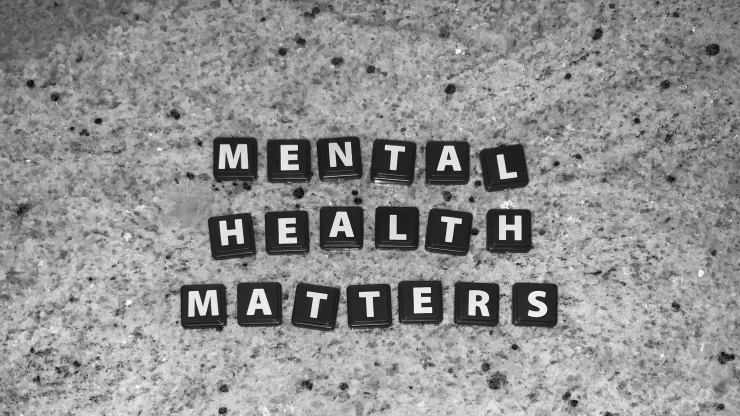As humans, we experience a wide range of emotions in our daily lives. Some days we feel happy and fulfilled, while other days we feel sad and defeated.
But have you ever stopped to think about where these emotions come from? Is happiness something that originates from the state of the mind?
In this article, we will explore the power of perspective and its link to happiness.
Jump to Section
The Basics: What is Perspective?
Defining Perspective
Perspective is the way in which we view the world around us. It is shaped by our experiences, beliefs, values, and cultural background.
Perspective influences our thoughts, emotions, and actions, and it can have a significant impact on our overall well-being.
The Role of Perspective in Perception
Our perspective shapes the way we perceive the world. For example, two people can look at the same situation and have completely different perspectives on it.
One person may see the situation as an opportunity, while the other person may see it as a challenge. Our perspective influences how we interpret events and situations, and it can impact our mood and emotions.
How Perspective Affects Our Emotions
Our perspective has a direct impact on our emotions. When we have a positive perspective, we are more likely to experience positive emotions such as joy, gratitude, and contentment.
On the other hand, a negative perspective can lead to negative emotions such as anger, frustration, and despair.
The Power of Perspective in Shaping Our Reality
Our perspective has the power to shape our reality. When we have a positive perspective, we are more likely to experience positive outcomes in life.
On the other hand, a negative perspective can lead to negative outcomes. Our perspective influences our thoughts, emotions, and actions, which in turn, shape our reality.
The Connection Between Mindset and Happiness
What is Mindset?
Mindset refers to our beliefs and attitudes about ourselves and the world around us. It influences how we think, feel, and behave.
There are two main types of mindsets: fixed and growth. A fixed mindset is the belief that our abilities and traits are predetermined and cannot be changed.
A growth mindset is the belief that we can learn, grow, and develop our abilities through hard work and dedication.
Why Mindset Matters in Achieving Happiness
Our mindset has a significant impact on our overall happiness and well-being. When we have a growth mindset, we are more likely to experience positive emotions and achieve our goals.
A fixed mindset, on the other hand, can lead to negative emotions and hinder our success.
The Relationship between Mindset and Perspective
Our mindset and perspective are closely linked. When we have a growth mindset, we are more likely to have a positive perspective on life.
We see challenges as opportunities for growth and development, which in turn, leads to positive outcomes.
The Benefits of a Positive Mindset
A positive mindset has numerous benefits. It can lead to increased happiness, better relationships, improved health, and greater success.
When we have a positive mindset, we are more likely to experience positive emotions and achieve our goals.
The Danger of a Negative Mindset
A negative mindset can have a significant impact on our well-being. It can lead to negative emotions such as anxiety, depression, and stress.
A negative mindset can also hinder our success and prevent us from achieving our goals.
The Science of Happiness: Does Happiness Originate from the State of the Mind?
The Link between Happiness and the Brain
Happiness is a complex emotion that involves various parts of the brain. The prefrontal cortex, amygdala, and hippocampus are all involved in the experience of happiness.
The Role of Neurotransmitters in Happiness
Neurotransmitters such as dopamine, serotonin, and oxytocin play a significant role in happiness. These chemicals are released in the brain during positive experiences and can contribute to feelings of happiness and well-being.
The Science of Positive Emotions
Positive emotions such as joy, gratitude, and contentment have numerous benefits for our health and well-being. They can lead to improved physical health, better relationships, and greater success.
The Benefits of Positive Emotions on Health and Well-being
Positive emotions have numerous benefits for our health and well-being. They can lead to reduced stress, improved immune function, and better cardiovascular health.
Positive emotions can also improve our relationships and increase our overall sense of well-being.
Perspectives and Happiness in Different Cultures
The Impact of Culture on Happiness and Perspective
Culture plays a significant role in shaping our perspective and influencing our happiness. Different cultures have different values, beliefs, and traditions, which can impact how individuals perceive and experience happiness.
The Perspectives on Happiness in Eastern and Western Cultures
Eastern and Western cultures have different perspectives on happiness. Eastern cultures tend to view happiness as a collective experience, while Western cultures view happiness as an individual experience.
Eastern cultures also place a greater emphasis on inner peace and contentment, while Western cultures place a greater emphasis on external achievements and material possessions.
How to Achieve a Positive Mindset for Greater Happiness
The Importance of Self-awareness
Self-awareness is critical in developing a positive mindset.
It involves being aware of our thoughts, emotions, and behaviors, and how they impact our well-being.
When we are self-aware, we can identify negative thought patterns and replace them with positive ones.
Techniques for Developing a Positive Mindset
There are numerous techniques for developing a positive mindset, including practicing gratitude, focusing on the present moment, cultivating positive relationships, and engaging in activities that bring us joy and fulfillment.
Summary
In summary, perspective and mindset play a significant role in our overall happiness and well-being. Our perspective shapes the way we perceive and experience the world, while our mindset influences how we think, feel, and behave.
By developing a positive mindset and cultivating a positive perspective, we can experience greater happiness and success in life.
FAQ
What is the difference between perspective and mindset?
Perspective refers to the way in which we view the world around us, while mindset refers to our beliefs and attitudes about ourselves and the world.
Can our perspective and mindset change over time?
Yes, our perspective and mindset can change over time. By practicing self-awareness and engaging in activities that promote a positive mindset and perspective, we can cultivate greater happiness and well-being.
How does culture impact our perspective and happiness?
Culture plays a significant role in shaping our perspective and influencing our happiness. Different cultures have different values, beliefs, and traditions, which can impact how individuals perceive and experience happiness.

With a deep passion for personal development, Ben has dedicated his career to inspiring and guiding others on their journey towards self-improvement.
His love for learning and sharing knowledge about personal growth strategies, mindfulness, and goal-setting principles has led him to create My Virtual Life Coach.
Contact Ben at [email protected] for assistance.




